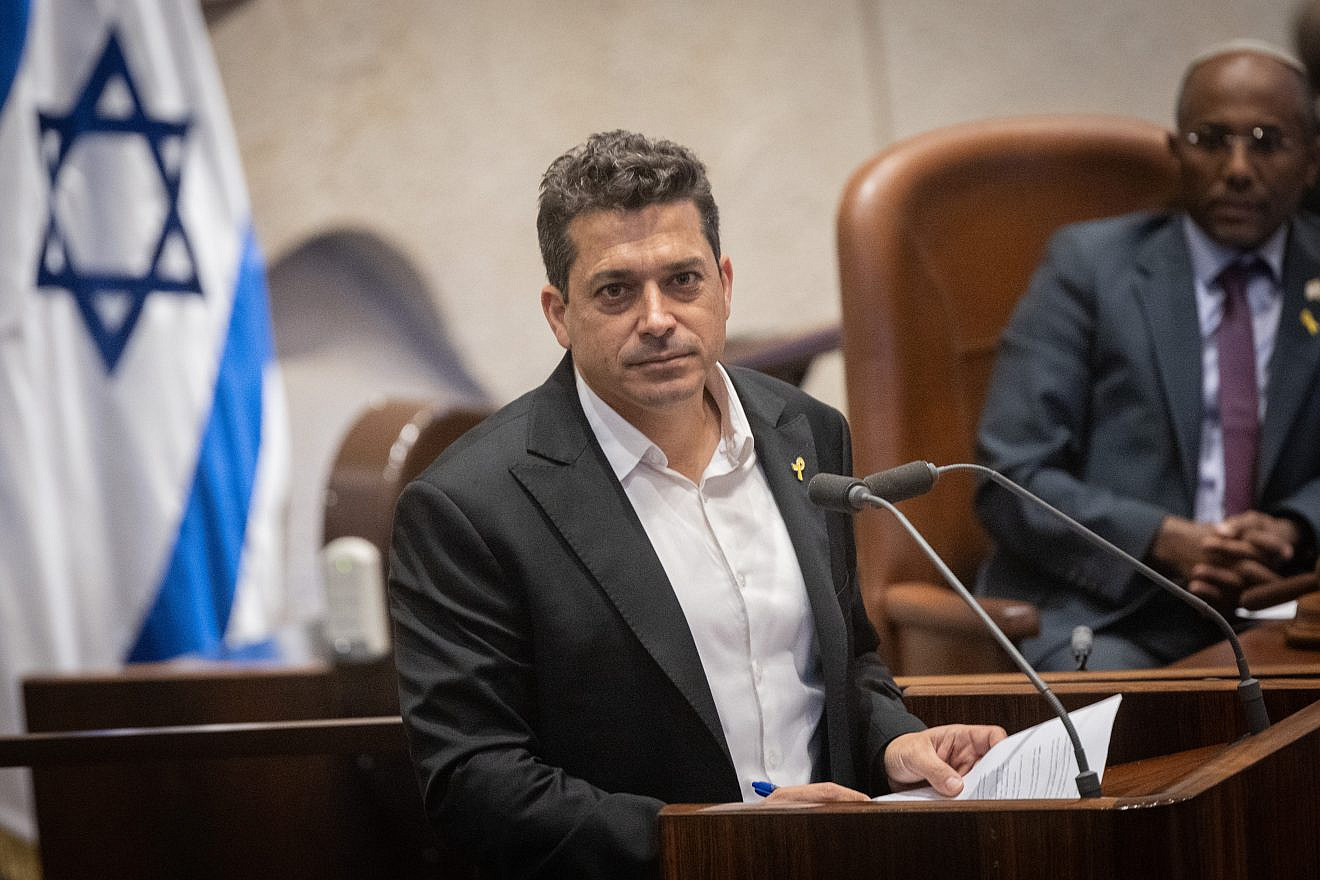In a departure from Israel’s traditional foreign policy, Diaspora Affairs Minister Amichai Chikli has been quietly cultivating relationships with far-right parties across Europe, many of which have shown support for Israel following the Oct. 7 Hamas onslaught.
Just a year ago, when senior members of Sweden’s far-right Sweden Democrats party visited Israel, the Knesset Foreign Affairs Committee advised lawmakers against meeting them, and the Foreign Ministry ignored their presence. Now, as right-wing parties gain strength across Europe and express strong support for Israel, it appears doors are opening for them in unexpected places.
While the Foreign Ministry maintains its policy of avoiding parties with neo-Nazi roots, Chikli has taken a different approach. He recently met with representatives of the Sweden Democrats in the Knesset, signaling a shift in engagement.
Operating largely under the radar of official foreign policy channels, including those overseen by Foreign Minister Israel Katz, Chikli has been weaving a network of connections with European right-wing parties since Oct. 7. In recent months, he has visited France and Hungary and addressed an official conference of the national right-wing Vox party in Madrid. Last month, he traveled to the United States, meeting with several senators to bolster support for Israel. His plans include visits to Portugal, Brazil, Argentina, Colombia and Mexico.
Chikli explains these new alliances to his social media followers, citing shared values in the fight against radical Islam, which he says is flooding Europe and seeking to destroy the Jewish state, as well as opposition to a nuclear Iran.
One might welcome a change in Israel’s diplomatic direction given the hostility from some European countries led by left-wing parties now pushing for recognition of a Palestinian state. The Foreign Ministry’s official stance, however, remains largely unchanged, viewing these parties as extreme and avoiding formal ties.
Chikli has emerged as a de facto foreign minister, consistently cultivating official government relationships with those who have become prominent supporters of Israel in its war against terrorism.
“October 7 became a trigger,” unnamed sources in Chikli’s office say, “and since then, the minister has devoted considerable time to pro-Israel foreign policy.”
Sympathetic
Chikli finds a receptive audience among parties such as Vox in Spain, Marine Le Pen’s National Rally in France, Viktor Orbán’s government in Hungary, Geert Wilders in the Netherlands, the Conservatives in Britain, and many others.
Given the stance of governments in Ireland, Norway, the Netherlands, Spain and others, it’s understandable why Israel seeks to strengthen ties with those not only sympathetic but also showing signs of growing stronger across the European continent.
In the Foreign Ministry, apart from a tweet by Katz, no change has occurred. It can be assumed that Prime Minister Benjamin Netanyahu gave unofficial approval for this further division in Israel’s foreign service, as previously only non-minister Knesset members and Likud party figures “risked” managing such relationships.
Now, the foreign service suffers not only from the split between Katz and Strategic Affairs Minister Ron Dermer (Netanyahu’s “U.S. portfolio holder”), but has undergone a new division, headed by Chikli, holder of the right-wing portfolio in Europe and elsewhere.
Alongside seeking new friends for the country, the Israeli minister doesn’t shy away from intervening in others’ politics. “Winds of change!” Chikli was quoted earlier this month by a major European media network on the European Parliament elections. “It was a great evening for Europe and a turning point for Western civilization. The spirit of ‘wokeness’ that led to moral collapse is being replaced by a new but old spirit: conservatism. Even if the road is long, truth will prevail.”
On the same day, Chikli tweeted against Belgian Prime Minister Alexander De Croo, who has taken a hostile approach to Israel in its war against Hamas and was caught on camera holding his head following his party’s defeat in those elections.
“Belgian PM @alexanderdecroo cried yesterday when his party was defeated. Apparently supporting terror doesn’t resonate with the Belgian people,” Chikli tweeted.
The next day, Chikli tweeted in favor of a British politician who heads the U.K.’s Reform Party, writing, “The violent attacks against @Nigel_Farage reinforce his argument—England is at a critical juncture with significant implications far beyond its borders: either surrender to the left and radical Islam or stand up and fight for the preservation of England’s identity.”
Beyond meetings, speeches and tweets, Chikli is paving a direct connection to former U.S. President Donald Trump’s inner circle, and to heads of other countries where power shifts to the right side of the political map have already occurred.
Recently, he asked Trump’s people for help in saving a Jew in Iran who has been sentenced to death. While Chikli consistently denies the findings of a recent report in the foreign media that his office manages an influence campaign on foreign soil, it seems that reality is not far from this, and not just in America. Without significant Israeli money but with a lot of attention, speeches, and a well-used diplomatic passport.
Originally published by Israel Hayom.
























